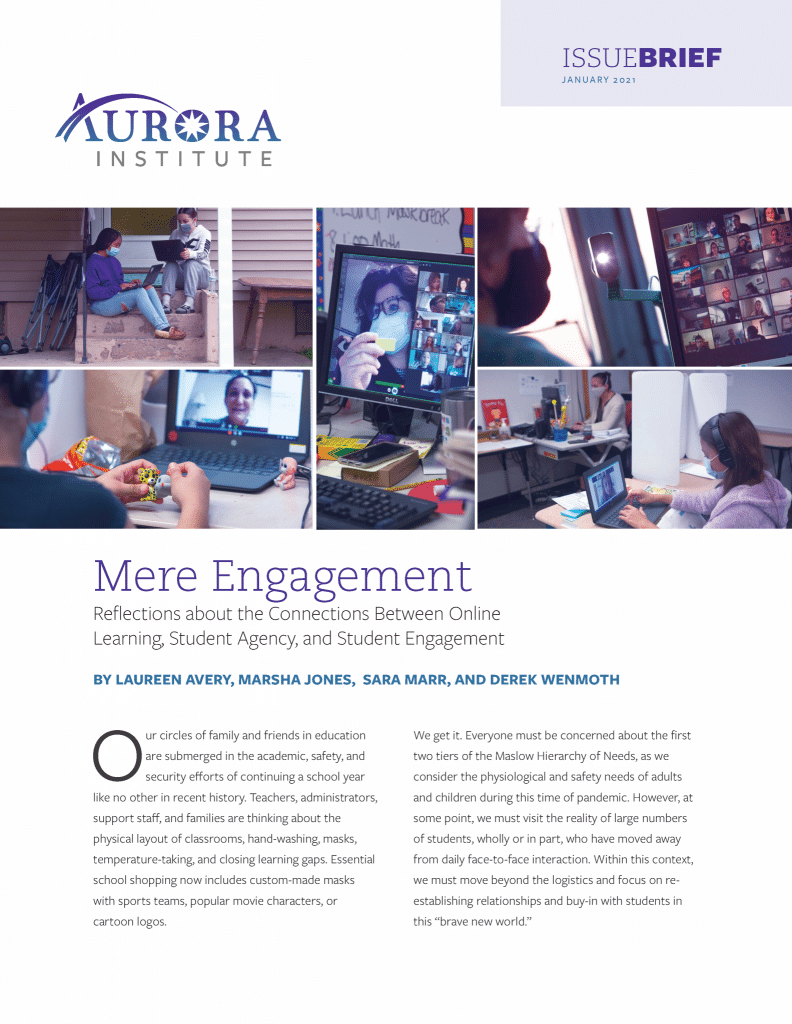Issue Brief
Mere Engagement: Reflections about the Connections Between Online Learning, Student Agency, and Student Engagement

School leaders mustn’t lose sight of the need for student agency and student engagement as they contend with the myriad challenges posed by COVID-19. In fact, they must reimagine what agency and engagement can look like in cases when students are learning virtually and also when they are unable to connect.
Mere Engagement: Reflections about the Connections Between Online Learning, Student Agency, and Student Engagement offers school leaders seven action steps to support students’ sense of mastery and ownership of their learning, along with promoting their sense of connection and belonging. They include:
- Make the implicit explicit by providing clear communications in multiple formats.
- Ensure anytime, anyplace learning with a mix of synchronous and asynchronous learning activities.
- Enable competency-based learning where students demonstrate mastery of content.
- Keep families in the loop.
- Design lessons that link student interests with the environment.
- Check for learning along the way.
- Create equitable opportunities to learn.
The authors posit that in the face of the havoc wreaked by COVID-19 and all of the issues competing for school leaders’ attention, that concerns about student agency and engagement are being “backburnered” to everyone’s detriment. “Without considering issues associated with student agency and student engagement, all our work to prepare may be in vain,” they write. And furthermore:
During a transition to remote or distance learning, students need a renewed sense of agency. They must understand what they are to learn and how to demonstrate their learning. They must know how to ask for assistance and exhibit self-direction and efficacy when working on assignments. They own their work and put forth their best efforts. When these attributes of student agency are in play, authentic engagement is occurring.